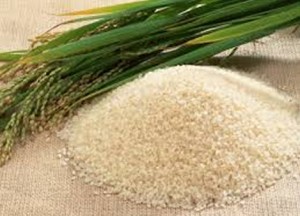Ghana farmers advised to use “bubble dryer” to improve local rice
 Mr Emmanuel Asior, Rice Value Chain Advisor at Green Innovation Centre (GIC) has asked rice farmers in the country to consider the use of “bubble dryer” to improve the quality of local rice.
Mr Emmanuel Asior, Rice Value Chain Advisor at Green Innovation Centre (GIC) has asked rice farmers in the country to consider the use of “bubble dryer” to improve the quality of local rice.
He said the technology, powered by solar energy prevents contamination, aflatoxin in maize, reduces cost and enhances profit.
Mr Asior said this at a day’s training workshop for District Crop Officers of the Ministry of Food and Agriculture (MOFA) held at the Adidome Farm Institute at Adidome in the Volta Region.
The workshop, which also attracted other actors in the rice value chain, was at the instance of the German International Cooperation (GIZ) in collaboration with MOFA.
Bubble dryer, is a ‘green dryer’ technology that uses solar radiation to power a system to blow hot air to dry cereals.
It is said to reduce moisture levels in cereals from 22 per cent to between 12 and 13 per cent in 24 hours.
Mr Asior lamented that though new farming technologies were in existence, Ghanaian farmers hardly used them and said it was time they welcomed innovations for growth in the sector.
He said the bubble dryer was targeted at smallholder farmers and farmer groups and urged them to take advantage of the technology.
Mr Jean-Bernard Lalanne, Team Leader, AFC Consultants International of GIZ, under Green Innovation Centre for Agriculture and Food Sector-Ghana said the main objective of the project was to help increase income for smallholder farmers.
He said the project was rolling out a “matching grant” facility to further make farming easier and more worthwhile for smallholder farmers in rural Ghana, as well as boost job creation.
Mr Lalanne said the project would soon engage Agriculture Extension Agents to disseminate information on new farming technologies to improve crop yields.
He also hinted at plans to offer technical training for actors in the rice value chain in Systems of Rice Intensification (SRI).
Mr Joseph Sarpong, the Principal of Adidome Farm Institute said without trained farmers, the country could not achieve food security. He underscored the need for regular capacity building for farmers.
“Our farmers need to learn and use new farming techniques. They must know about seed quality, types of soil and chemical application not only dropping the seed in the soil,” he said.
Source: GNA
